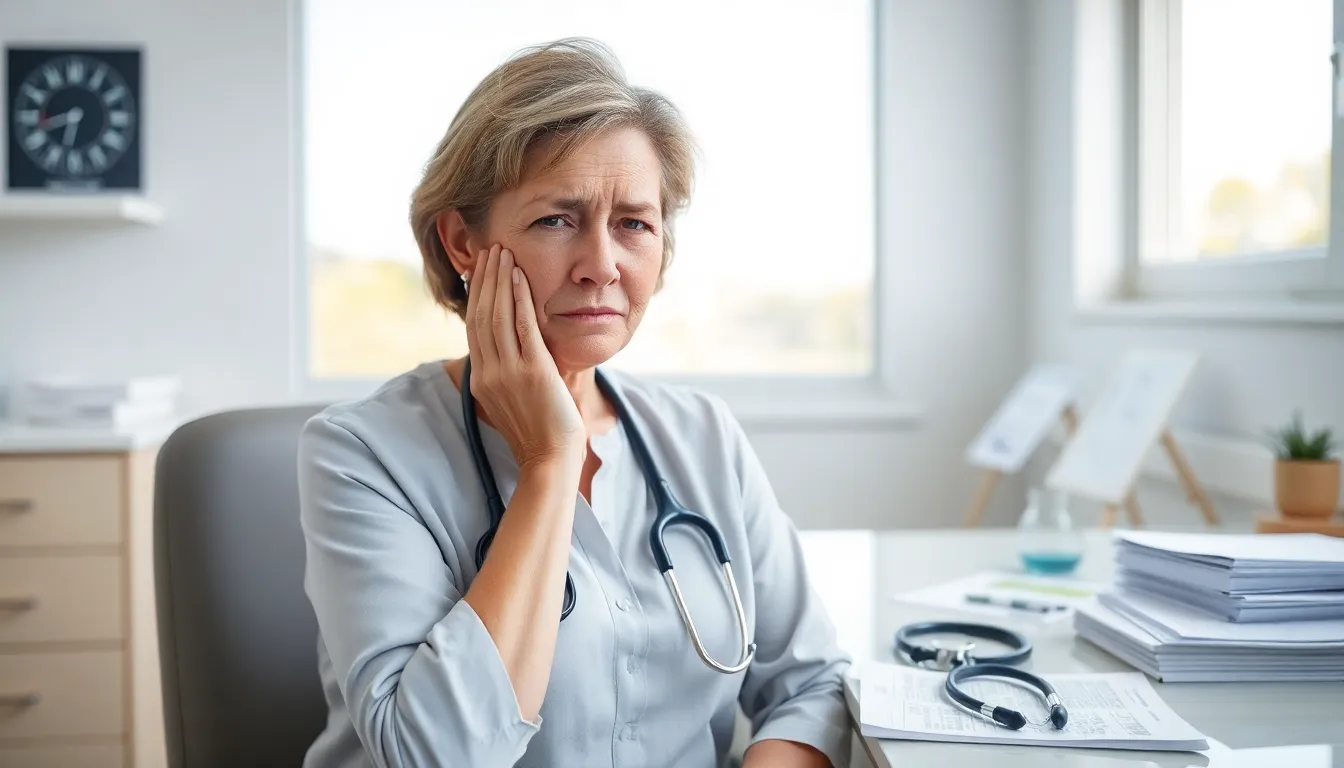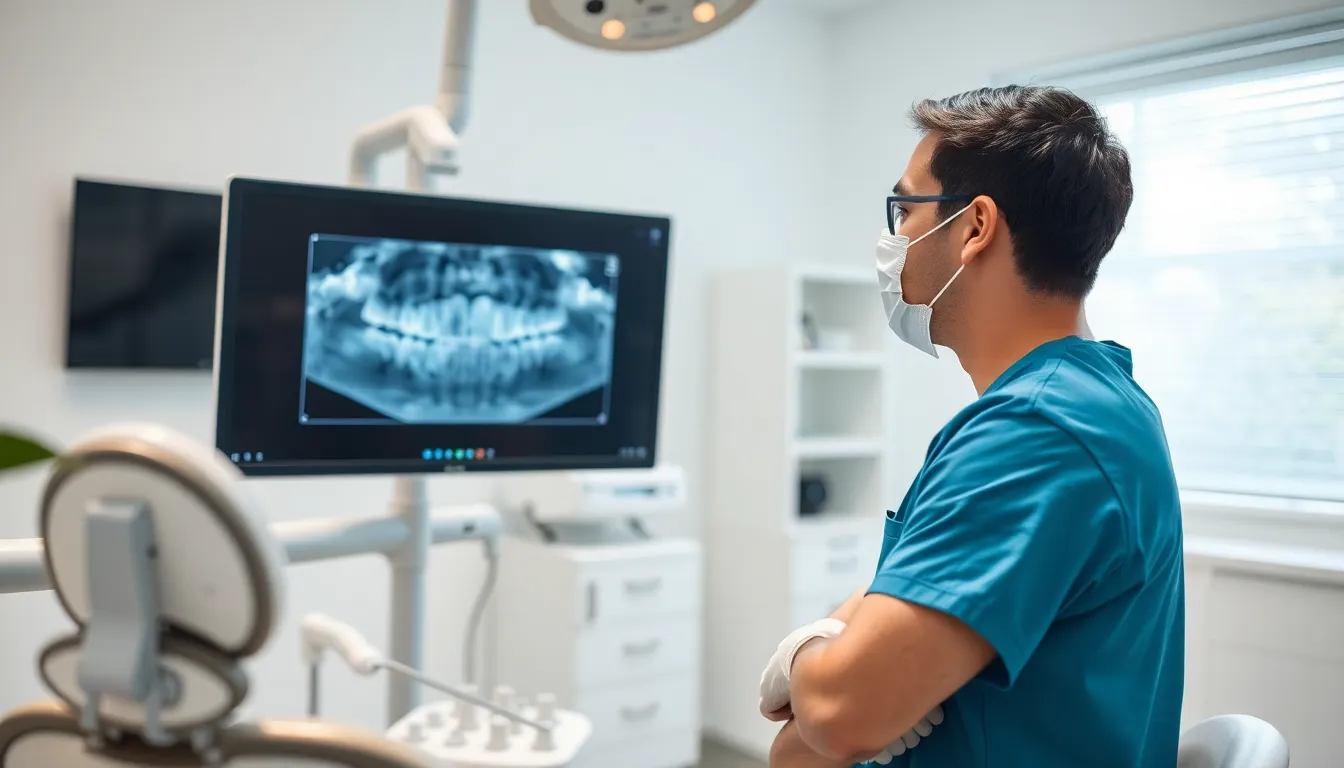Table of Contents
ToggleReproductive health might sound like a serious topic, but it’s one that deserves a light-hearted approach. After all, understanding the ins and outs of this subject can be as crucial as knowing how to properly brew a cup of coffee—both can lead to a much happier life! From hormones to health screenings, getting the lowdown on reproductive health ensures everyone can make informed choices about their bodies.
Overview of Reproductive Health
Reproductive health encompasses a range of topics crucial for physical, mental, and social well-being. It involves understanding the body’s reproductive system, its functions, and the impact of various factors on reproductive capabilities. Knowledge about hormones plays a significant role in this area, as they regulate processes like menstruation, fertility, and menopause.
Screenings and preventive measures also contribute to reproductive health. Regular health check-ups, including Pap smears and STI screenings, can identify potential issues early on. Access to these services ensures timely intervention, promoting healthier outcomes.
Education on reproductive health empowers individuals to make informed choices. Knowledge about contraceptive methods allows one to effectively plan family size and timing. Beyond contraception, understanding pregnancy options and infertility treatments enhances one’s ability to navigate complex decisions.
Cultural and social factors affect perceptions of reproductive health too. Social stigma may influence discussions and access to essential services. Recognizing these obstacles can help foster supportive environments for open dialogue.
Reproductive health is not solely a women’s issue. Men also require awareness of their reproductive health, including conditions like low testosterone and erectile dysfunction. An inclusive approach enhances overall community health, facilitating better communication between partners.
Overall, emphasizing reproductive health leads to improved quality of life. It encourages healthy relationships and informed choices, fortifying individuals’ capabilities in managing their bodies. Understanding reproductive health ultimately contributes to overall societal well-being.
Importance of Understanding Inside Reproductive Health

Understanding reproductive health significantly enhances individual well-being and societal progress. Comprehensive knowledge fosters informed decisions, impacting both personal and community health.
Impact on Individual Well-being
Awareness of reproductive health empowers individuals to make informed choices about their bodies. Knowledge about hormonal balance aids in managing menstrual cycles and fertility. Regular health screenings such as Pap smears and STI tests prevent complications through early detection. Mental health also improves when individuals feel confident about their reproductive knowledge. Individuals who understand reproductive health experience healthier relationships, as communication between partners flourishes. Essential information contributes to family planning and pregnancy choices, enabling healthier lives.
Societal Implications
Reproductive health influences broader societal dynamics, shaping public health policies and resources. Communities with higher awareness often experience reduced stigma associated with reproductive issues. Accessible educational resources promote open discussions, enhancing overall health literacy. Improved reproductive health contributes to economic stability, as better health outcomes reduce healthcare costs. Society benefits when both men and women prioritize reproductive health, fostering partnerships that support shared responsibilities. Collective understanding drives advocacy for reproductive rights, ensuring equitable access to services for all individuals.
Key Components of Reproductive Health

Reproductive health encompasses various essential components crucial for well-being. Understanding these elements fosters informed choices and enhances overall life quality.
Physical Health Aspects
Physical health significantly influences reproductive well-being. Regular health screenings, such as Pap smears, STI tests, and prostate examinations, promote early detection of potential issues. Hormonal balance plays a vital role in menstrual cycles, fertility, and overall reproductive functions. Maintaining a healthy lifestyle through a balanced diet and regular exercise contributes to reproductive health. Medical professionals advise individuals to be aware of their body changes and seek care when necessary. Comprehensive healthcare addresses unique needs for both women and men, ensuring optimal reproductive outcomes.
Mental and Emotional Health
Mental and emotional health intertwined with reproductive well-being impacts overall quality of life. Factors such as stress, anxiety, and depression can affect hormonal balance and reproductive functions. Individuals benefit from mental health support to navigate challenges related to family planning, pregnancy, or infertility. Creating a supportive environment encourages open discussions about reproductive health concerns. Access to counseling services can alleviate stigma and promote healthier mindsets. Fostering healthy relationships also strengthens emotional support systems, enhancing individuals’ overall reproductive health.
Access to Reproductive Services
Access to reproductive services is vital for informed health decisions. Individuals must find available resources for family planning, contraception, and prenatal care. Community education initiatives increase awareness and decrease stigma surrounding reproductive issues. Preventive services and comprehensive care must be available to all, ensuring equitable access. Highlighting the importance of health insurance coverage allows individuals to seek necessary reproductive services without financial burden. Empowering communities encourages collaboration among healthcare providers and clients, leading to improved public health outcomes.
Current Trends in Reproductive Health
Current trends in reproductive health highlight significant advancements and changes. These trends reflect a commitment to improving overall well-being.
Advances in Technology
Innovations in reproductive health technology enhance efficiency and accessibility. For instance, telemedicine allows individuals to consult healthcare providers from their homes. Mobile applications track menstrual cycles and fertility, empowering users with personalized data. Genetic testing now offers insights into potential hereditary conditions, aiding informed decisions regarding family planning. Additionally, breakthroughs in assisted reproductive technologies (ART) increase success rates for couples facing infertility. Such developments demonstrate a stronger focus on patient-centered care, streamlining processes that once involved lengthy hospital visits.
Changes in Policy and Regulation
Shifts in policy and regulation significantly impact access to reproductive health services. Recent legislative changes aim to broaden access to contraceptive methods and reproductive education. Many states have begun initiatives to support comprehensive sex education in schools, addressing gaps in knowledge. Regulations surrounding health insurance now often require coverage for preventive services, including screenings and contraception. Enhanced funding for reproductive health programs facilitates increased outreach and support in underserved communities. These changes reflect a growing acknowledgment of the importance of equitable access to reproductive health services, contributing to improved public health outcomes.
Reproductive health is a vital aspect of overall well-being that deserves attention and understanding. By fostering open conversations and promoting education, individuals can navigate their reproductive journeys with confidence.
The advancements in technology and policy changes reflect a growing commitment to making reproductive health services more accessible. As awareness increases, communities can break down stigmas and create supportive environments for everyone.
Ultimately, prioritizing reproductive health not only enhances personal quality of life but also contributes to healthier relationships and stronger societies. Empowering individuals with knowledge and resources paves the way for a brighter future for all.







